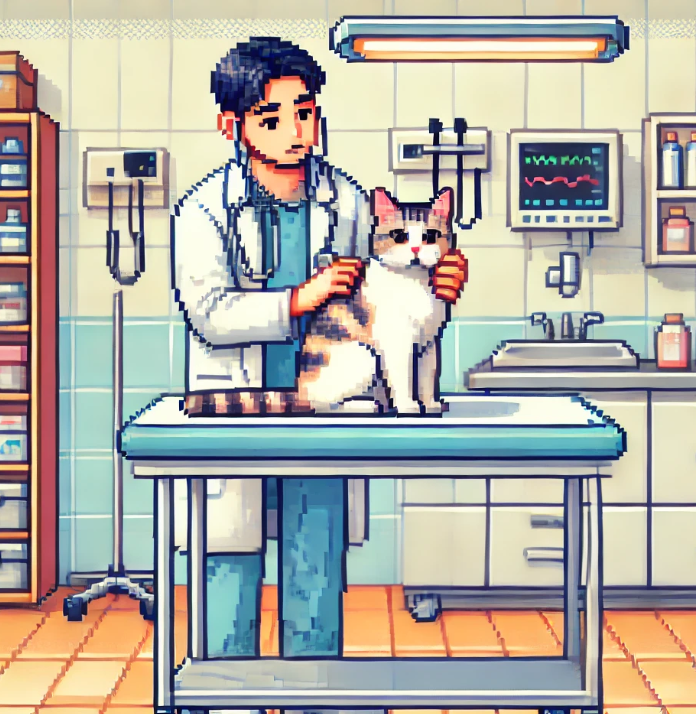
What Every Cat Owner Should Know About Surgical Risks
Have you ever wondered what happens when your cat needs surgery? Whether it’s an emergency or a planned procedure, understanding the risks can be a critical step in protecting your beloved pet’s health. A recent study from the University of Georgia sheds light on factors that influence the safety of hospitalized cats during surgery. These findings could change how we care for our furry companions before, during, and after medical procedures.
What Does the Research Say About Cat Surgery?
The study, conducted over five years, analyzed data from 492 cats hospitalized for soft tissue surgeries. The all-cause mortality rate was 6.1%, with emergency surgeries and cats with higher American Society of Anesthesiologists (ASA) status facing the greatest risks.
Key takeaways:
- Emergency surgeries increased the likelihood of complications or death threefold.
- Higher ASA status, which measures the overall health of a cat before surgery, was linked to a 2.7 times higher risk of mortality.
- Other contributing factors included longer anesthesia duration and pre-existing health conditions like heart disease.
What This Means for Cat Owners
Understanding these risks is essential, especially for emergencies or if your cat has underlying health conditions. Here are some practical insights for cat owners:
1. Know Your Cat’s Health Status
Before surgery, your vet will assess your cat’s ASA status, ranging from 1 (healthy) to 5 (critical). Be proactive:
- Share your cat’s full medical history.
- Ask questions about how any conditions, such as heart or kidney disease, might affect the surgery.
2. Prepare for Emergencies
While you can’t always predict emergencies, you can:
- Keep an emergency vet clinic’s contact info handy.
- Set aside an emergency fund to avoid financial stress during critical moments.
3. Discuss Anesthesia Duration
Longer procedures can increase risks. Ask your vet:
- How long the surgery is expected to take.
- What measures they’ll use to monitor your cat’s vital signs during anesthesia.
Relatable Analogy: Surgery and Road Trips
Imagine preparing for a long road trip. The car’s condition (ASA status) and the length of the journey (anesthesia duration) directly affect the likelihood of a smooth trip. Similarly, cats undergoing surgery fare better when they’re in good health, and the “journey” under anesthesia is as short as possible. As a pet owner, you’re the co-pilot ensuring everything is in top condition before the trip begins.
Broader Implications for Pet Health
This study highlights an important shift in veterinary care: the growing emphasis on preventive measures and careful monitoring. Trends such as better pre-surgical assessments, advanced anesthesia monitoring, and personalized care plans can significantly improve outcomes.
For instance:
- Newer technology like pulse oximetry can help track your cat’s oxygen levels during surgery.
- Preventive care, like regular heart and kidney check-ups, can address issues early, improving surgical safety.
Practical Tips to Reduce Risks
Here’s what you can do as a cat owner:
- Prioritize regular check-ups: Early detection of health problems can lower surgical risks.
- Maintain a healthy weight for your cat: Obesity can complicate surgeries.
- Provide a stress-free recovery environment: After surgery, ensure your cat has a quiet, comfortable space to heal.
- Follow post-operative care instructions: Administer medications as prescribed and attend follow-up appointments.
Myth-Busting: Is It Safe to Delay Elective Surgery?
Some owners might think postponing surgery is safer. However, untreated conditions like dental disease or tumors can worsen over time, leading to more complicated and riskier procedures. Discuss the timing with your vet to ensure the best outcome for your cat.
Share Your Pet’s Story
Every cat has a unique story, and sharing yours can inspire and educate fellow pet lovers. Have you faced a challenging surgery with your pet? What steps have you taken to keep your furry friend healthy? Let us know in the comments below!
Questions to get started:
- How do you prepare your cat for vet visits or procedures?
- Have you experienced an emergency surgery with your pet? What did you learn?
- What tips would you share with other pet owners about post-surgical care?




